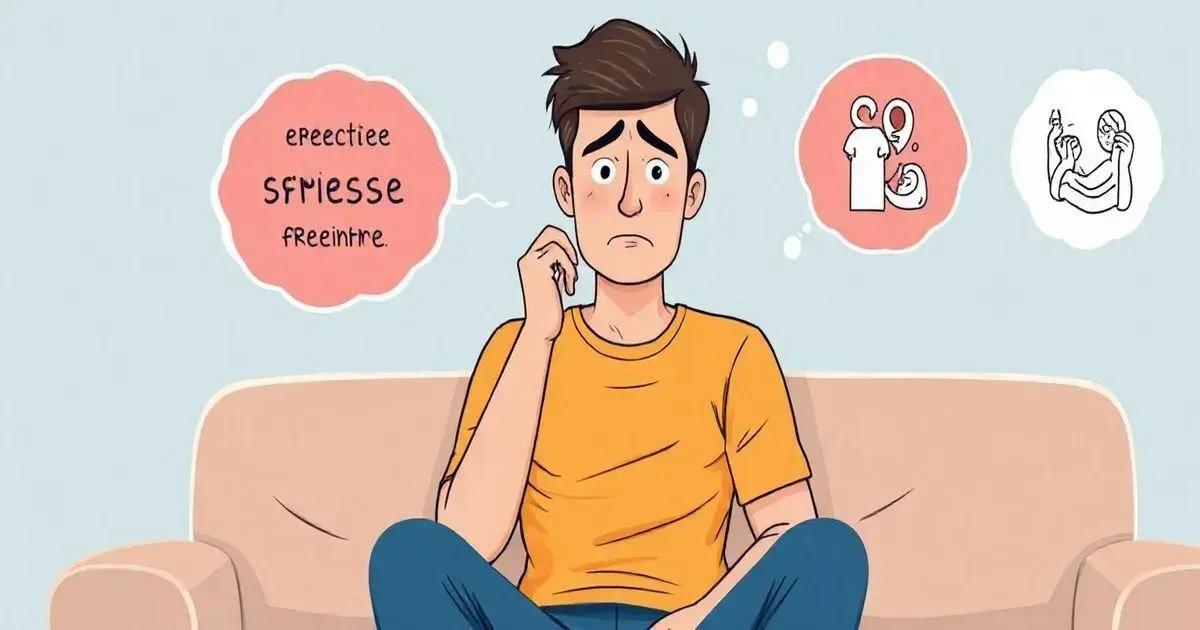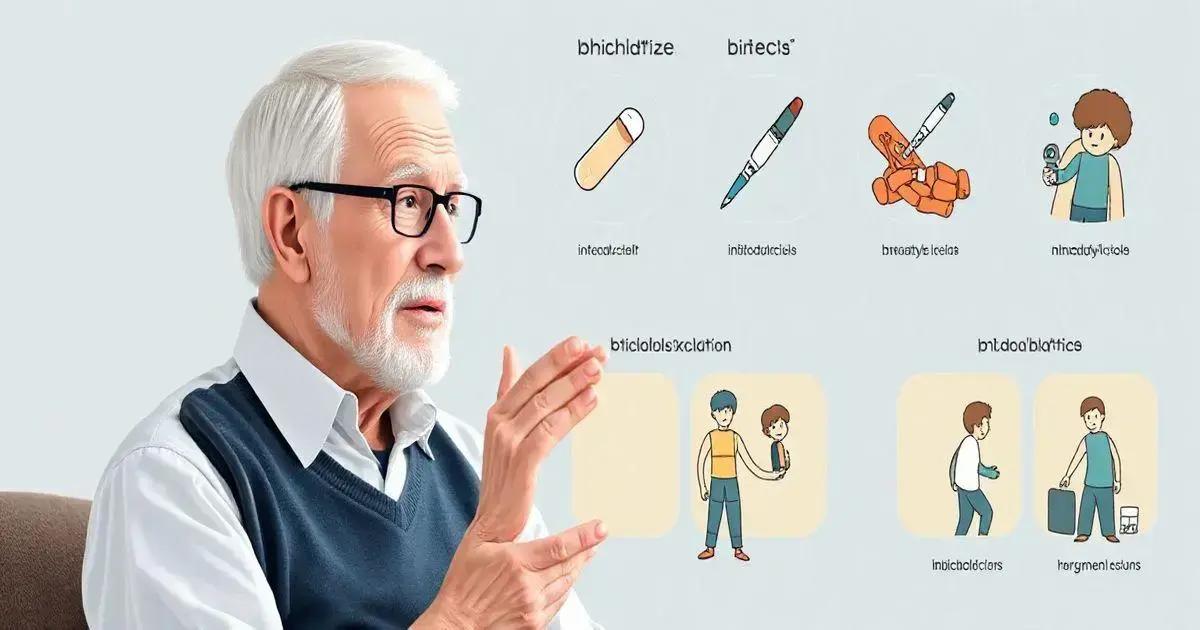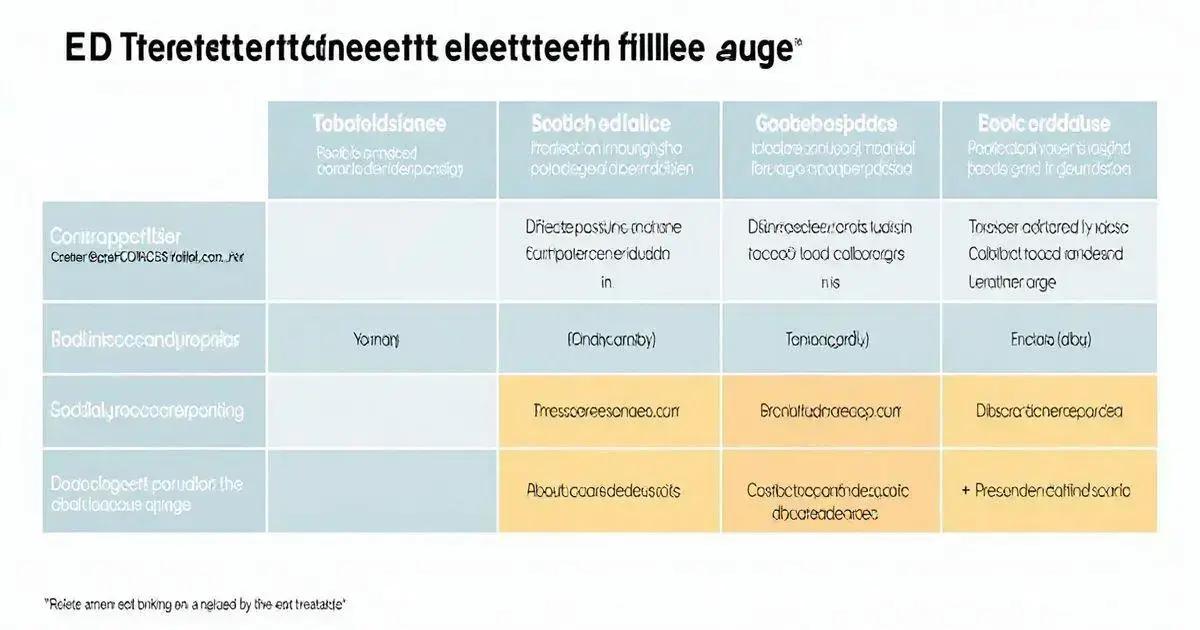The impact of age on erectile dysfunction treatments is significant, as different age groups face unique causes and require tailored management strategies, including lifestyle changes, psychological support, and various medical treatments, evolving with new innovations that aim to improve effectiveness and patient outcomes.
Erectile dysfunction (ED) affects many men, especially as they age. As we delve into the impact of age on erectile dysfunction treatments, it becomes vital to recognize how different age groups face unique challenges and opportunities in managing this condition. This article aims to provide insights into understanding erectile dysfunction, explore how age influences treatment options, and discuss the role of lifestyle in enhancing ED outcomes. We will also compare various treatments based on age groups and look at emerging trends that could shape future solutions.
Understanding Erectile Dysfunction

Erectile dysfunction (ED) is a common condition that affects many men, particularly as they age. It occurs when a man is unable to achieve or maintain an erection suitable for sexual intercourse. While it can happen occasionally to any man, regular difficulties can indicate an underlying health issue.
Causes of Erectile Dysfunction
There are many factors that can contribute to erectile dysfunction. These can include physical issues such as cardiovascular disease, diabetes, and hormonal imbalances. Additionally, psychological factors like stress, anxiety, and depression can also play a significant role.
Understanding Symptoms
Men with ED may experience various symptoms, including reduced sexual desire, difficulty getting an erection, and trouble maintaining an erection during sexual activities. Recognizing these signs is important for seeking timely treatment.
The Importance of Medical Consultation
Consulting a healthcare professional is crucial for anyone experiencing ED. A doctor can conduct a thorough evaluation to identify the underlying causes and recommend appropriate treatments. Early diagnosis can lead to better outcomes.
Emotional Impact of Erectile Dysfunction
ED can lead to feelings of embarrassment, low self-esteem, and relationship problems. It is important to acknowledge the emotional side of the condition as it can affect not just the individual but also their partner.
Common Myths About Erectile Dysfunction
There are many misconceptions surrounding ED. Some believe that it only affects older men or that it is simply a natural part of aging. In reality, men of all ages can experience ED, and it is often treatable.
How Age Affects Treatment Options

Age plays a significant role in determining the most effective treatment options for erectile dysfunction (ED). As men get older, their bodies undergo various biological changes that can impact their sexual health.
Different Treatment Needs by Age
Younger men with ED may find that psychological factors contribute more to their condition and often respond well to therapy or counseling. In contrast, older men might experience ED due to physical changes and chronic health issues. As a result, treatment options often vary significantly based on their age group.
Medications and Their Age Impact
Medications like Viagra or Cialis are commonly prescribed for ED, but their effectiveness can differ by age. Studies show that older men may require adjustments in dosage or may have interactions with other medications they are taking for chronic conditions. It’s essential for older men to consult with their healthcare provider for safe options.
Advanced Treatments for Older Adults
For older adults, more advanced treatment options, such as injections or vacuum erection devices, are often considered. These methods can help deal with ED if oral medications do not work effectively. Additionally, treatments like penile implants may be recommended for those who have not found relief from other options.
Psychological Considerations with Age
As men age, psychological factors can become more prominent, potentially leading to avoidance of intimacy due to embarrassment or frustration surrounding ED. Addressing these mental health aspects through counseling can be especially important for older men.
Regular Health Check-Ups
Regular health check-ups are essential for older males experiencing ED. These visits allow for a comprehensive assessment of overall health, which can impact erectile function. Early detection of underlying conditions can lead to more effective treatment strategies tailored by age.
The Role of Lifestyle in ED Management

Lifestyle choices play a significant role in managing erectile dysfunction (ED). Many health factors, such as diet, exercise, and stress levels, can greatly impact sexual health. Making positive lifestyle changes can enhance treatment effectiveness and overall well-being.
The Importance of Diet
A healthy diet can improve blood flow and hormone levels, which are vital for achieving erections. Diets rich in fruits, vegetables, whole grains, and healthy fats, such as the Mediterranean diet, have been shown to benefit erectile function. Foods like nuts, fish, and leafy greens can provide essential nutrients necessary for sexual health.
Regular Exercise
Engaging in regular physical activity can help maintain a healthy weight, lower blood pressure, and improve circulation. Exercise also promotes the release of endorphins, which can boost mood and reduce stress. Even moderate activities like walking or cycling can significantly benefit those experiencing ED.
Avoiding Tobacco and Excessive Alcohol
Smoking and excessive alcohol consumption are linked to erectile dysfunction. Nicotine can restrict blood flow, while heavy drinking can hinder the hormonal and nerve functions needed for arousal. Reducing or eliminating these substances can lead to improvements in erectile health.
Managing Stress and Mental Health
Stress, anxiety, and depression are common contributors to erectile dysfunction. Finding ways to manage stress through relaxation techniques, meditation, or therapy can significantly impact sexual health. Open communication with partners about these issues can also help strengthen relationships and reduce anxiety.
The Role of Sleep
Quality sleep is crucial for maintaining hormonal balance and overall health. Men with sleep disorders or chronic fatigue often experience reduced libido and increased risk of ED. Prioritizing good sleep hygiene can enhance energy levels and improve sexual function.
Comparative Analysis of Treatments by Age Group

The treatment of erectile dysfunction (ED) varies significantly across different age groups. Understanding these differences can help in selecting the most effective and suitable treatments for men facing this condition.
Treatment Options for Young Men
Young men often experience ED due to psychological factors or temporary physical issues. In these cases, therapies such as counseling or cognitive behavioral therapy can prove effective. Medications like oral phosphodiesterase type 5 (PDE5) inhibitors, such as Viagra or Cialis, may also be prescribed.
Treatment Options for Middle-Aged Men
Middle-aged men may begin to experience ED due to more complex factors, including hormonal changes and medical conditions like diabetes or hypertension. In addition to oral medications, lifestyle modifications become crucial. This group may benefit from a combination of medications and healthy lifestyle changes, such as improved diet and regular exercise.
Treatment Options for Older Men
Older men often face multiple health issues that can exacerbate ED. While PDE5 inhibitors may still be appropriate, other treatments are commonly considered. These include vacuum erection devices, injections, and sometimes penile implants. Management of underlying health issues through regular medical check-ups is also particularly important for older adults.
Age-Related Response to Treatments
Research indicates that older men may respond differently to certain treatments compared to younger men. Factors such as medication metabolism, existing health conditions, and hormonal changes can impact effectiveness. Tailoring treatments based on individual health profiles is essential for all age groups.
The Impact of Comorbidities
Comorbid conditions, like heart disease or diabetes, tend to be more prevalent in older age groups, influencing treatment choices. Understanding how these illnesses relate to ED can help in creating an effective treatment strategy that addresses both sexual health and overall well-being.
Future Trends in ED Treatments

As research advances, the future of erectile dysfunction (ED) treatment is evolving rapidly. New techniques and technologies promise to enhance effectiveness and address the unique needs of different age groups.
Emerging Therapies
Innovative therapies, such as stem cell therapy and platelet-rich plasma (PRP) treatments, are being studied for their ability to regenerate tissue and enhance blood flow. Initial research shows promising results, suggesting these techniques may provide alternative solutions for erectile dysfunction in the future.
Personalized Medicine
Personalized medicine aims to tailor treatments based on an individual’s genetic profile and lifestyle. This could lead to more effective and targeted interventions, making treatments safer and more efficient for men of all ages.
Telemedicine and Remote Monitoring
Telemedicine is becoming increasingly popular, allowing patients to consult with healthcare providers remotely. This ease of access can help men seek treatment sooner and make ongoing management of ED more efficient. Remote monitoring tools may also help in tracking the effectiveness of various treatments.
Technological Advancements in Devices
Advancements in medical devices, such as smarter vacuum pumps and improved penile implants, are on the horizon. These developments aim to improve comfort, ease of use, and results for users, making treatment more appealing to men.
Psychological Support Integration
Understanding the psychological effects of erectile dysfunction is essential for treatment. Future trends may focus more on integrating mental health support and counseling into ED treatment plans, ensuring a holistic approach that addresses emotional and relational aspects alongside physical health.
In Summary: Understanding and Addressing ED
Erectile dysfunction (ED) affects men across various age groups, and it is crucial to recognize the different factors influencing its manifestation and treatment. From understanding the underlying causes to examining how age impacts treatment options, each age group has unique needs that must be addressed.
A comprehensive approach to managing ED involves not only medical treatments but also lifestyle changes, including diet, exercise, and emotional support. As treatment options continue to evolve with innovative therapies and advancements in technology, men can look forward to more effective and personalized solutions.
By staying informed and proactive, individuals and healthcare providers can work together to navigate the challenges of ED, ultimately improving the quality of life for those affected.
FAQ – Frequently Asked Questions About Erectile Dysfunction Treatments
What is erectile dysfunction (ED)?
Erectile dysfunction (ED) is the inability to achieve or maintain an erection suitable for sexual activity, affecting many men for various reasons.
How does age impact erectile dysfunction treatments?
Age influences both the underlying causes of ED and the effectiveness of different treatments, with younger men often benefiting from counseling and older men requiring medical interventions.
What lifestyle changes can help manage ED?
Healthy lifestyle changes, such as a balanced diet, regular exercise, quitting smoking, and managing stress, can significantly improve erectile function.
What are common treatments for ED?
Common treatments include oral medications (like Viagra), injections, vacuum erection devices, and penile implants, with options varying by age and overall health.
Are there new trends in ED treatments?
Yes, emerging treatments such as stem cell therapy, personalized medicine, and telemedicine are being explored to enhance the effectiveness of ED management.
How important is mental health in ED management?
Mental health plays a crucial role in ED as psychological factors can contribute to the condition; addressing these through therapy is an important part of treatment.












